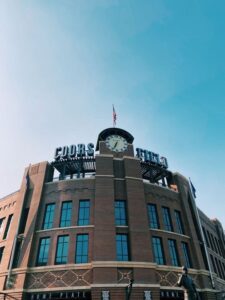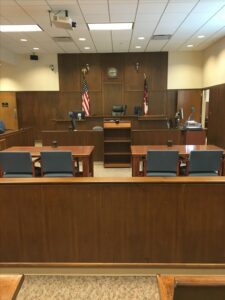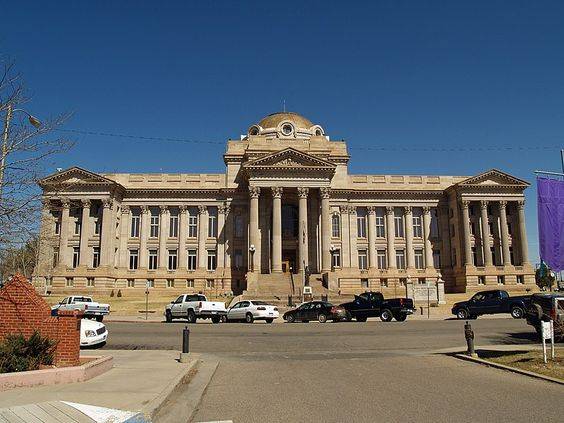Denver County Court System
The Denver County Court System stands as a cornerstone of justice in Colorado’s capital, serving as the battleground for legal disputes, the protector of rights, and the embodiment of the rule of law. With a rich history and a commitment to fairness, the Denver County Court System plays a vital role in maintaining order and upholding justice within the local community. In this comprehensive guide, we will delve into the various aspects of the Denver County Court System, including its structure, functions, notable cases, and the ways individuals can navigate through its intricate processes.
Understanding the Denver County Court System:
The Denver County Court System operates within the framework of the Colorado judicial system. It holds jurisdiction over various civil and criminal cases that occur within the boundaries of Denver County. The court system is divided into multiple divisions, each specializing in different types of cases such as civil, criminal, traffic, and small claims. This division ensures that cases are handled by judges with expertise in the specific legal area, promoting efficiency and accuracy in decision-making.
Structure of the Court System:
The Denver County Court System comprises several key elements, including judges, attorneys, clerks, and other support staff. Judges preside over cases, interpret the law, and make impartial decisions based on the evidence presented. Attorneys represent the parties involved and present arguments to support their clients’ positions. Clerks and administrative staff manage the paperwork, scheduling, and other logistical aspects of court proceedings.
Functions of the Denver County Court System:
Criminal Cases:
The Denver County Court handles a wide range of criminal cases, including misdemeanours and violations of city ordinances. These cases involve offences such as theft, assault, drug possession, and traffic violations. The court aims to ensure a fair trial for defendants while upholding public safety.
Civil Cases:
Civil cases in Denver County Court cover a variety of disputes between individuals, businesses, or entities. These can include contract disputes, property disputes, personal injury claims, and more. The court’s role is to provide a platform for resolving disagreements and enforcing legal rights.
Traffic Violations:
The court also addresses traffic violations, promoting safe driving habits and enforcing traffic laws. Cases related to speeding, reckless driving, and other traffic infractions are heard in this division.
Small Claims:
The small claims division handles cases involving smaller monetary disputes, typically up to a certain limit. This division provides an accessible way for individuals to seek compensation for damages without the need for extensive legal representation.
Notable Cases and Precedents:
Over the years, the Denver County Court System has seen its fair share of noteworthy cases that have shaped legal precedents and influenced the local legal landscape. These cases have ranged from groundbreaking civil rights decisions to high-profile criminal trials, leaving a lasting impact on the community and beyond.

Navigating the Denver County Court System:
Filing a Case:
To initiate legal action, individuals must file a complaint or petition with the appropriate division of the court. This involves submitting relevant documents, paying filing fees, and providing necessary information about the case.
Legal Representation:
Depending on the complexity of the case, individuals may choose to hire an attorney to represent their interests in court. Attorneys provide legal expertise, strategic guidance, and advocacy throughout the legal process.
Court Proceedings:
Once a case is filed, it progresses through various stages, including hearings, motions, and trials. Parties present evidence, examine witnesses, and make legal arguments to support their positions.
Settlement and Mediation:
In many cases, parties may choose to resolve their disputes through settlement negotiations or mediation. These alternative dispute-resolution methods can lead to mutually acceptable outcomes without the need for a full trial.
Also Read: Supreme Court postal worker
Appeals:
If a party is dissatisfied with the outcome of a case, they may have the option to appeal the decision to a higher court. The appeals process involves reviewing legal errors that may have occurred during the trial.
Challenges and Reforms in the Denver County Court System:
While the Denver County Court System is an essential pillar of the justice system, it’s not without its challenges. Overcrowded dockets, limited resources, and disparities in access to justice are issues that the system has grappled with. Addressing these challenges requires a combination of innovative reforms, community engagement, and policy changes.
Case Backlog:
Like many court systems across the nation, the Denver County Court faces challenges related to case backlog. High caseloads can lead to delays in proceedings, affecting both individuals seeking justice and the overall efficiency of the court. Implementing efficient case management systems and exploring alternative dispute resolution methods can help alleviate this backlog.

Access to Justice:
Ensuring equal access to justice for all members of the community remains a critical concern. Limited resources can disproportionately impact marginalized communities, hindering their ability to engage with the legal system effectively. Initiatives like legal aid programs, community outreach, and pro bono services can help bridge this gap.
Technological Integration:
Embracing technological advancements can streamline court processes and enhance transparency. Online case filing, virtual hearings, and electronic document management systems can modernize the court system, making it more accessible and efficient.
Community Engagement:
The Denver County Court System can benefit from increased community engagement and collaboration. Outreach programs that educate the public about their rights, responsibilities, and the court process can foster a better understanding of the legal system and promote trust.
Criminal Justice Reform:
With a growing awareness of issues within the criminal justice system, Denver County Court has the opportunity to contribute to broader criminal justice reforms. This includes reevaluating sentencing practices, addressing the impacts of cash bail, and promoting rehabilitation over punitive measures.
Also Discover: A Court of Mist and Fury Summary
Conclusion:
The Denver County Court System plays an integral role in maintaining justice and upholding the rule of law within the vibrant city of Denver. With its diverse divisions, commitment to fairness, and historical significance, the court system stands as a symbol of legal integrity and community cohesion. By understanding its structure, functions, and the ways individuals can navigate its processes, we empower ourselves to engage with the legal system and contribute to a just society.
FAQs:
Q1: What is the Denver County Court System?
The Denver County Court System is a vital component of the Colorado judicial system. It holds jurisdiction over various civil, criminal, traffic, and small claims cases that occur within Denver County. The court system is divided into different divisions, each specializing in specific legal areas.
Q2: How is the Denver County Court System structured?
The Denver County Court System consists of judges, attorneys, clerks, and administrative staff. Judges preside over cases, attorneys represent parties, clerks manage paperwork and scheduling, and support staff assist in various aspects of court proceedings.
Q3: What types of cases does the Denver County Court handle?
The Denver County Court System handles a variety of cases, including criminal cases (misdemeanours, violations of city ordinances), civil cases (disputes between individuals or entities), traffic violations, and small claims cases (monetary disputes within a specific limit).
Q4: Can I file a case in the Denver County Court System?
Yes, individuals can file a case in the Denver County Court System. To initiate legal action, you need to file a complaint or petition with the appropriate division, pay filing fees, and provide relevant information about the case.
Q5: Do I need an attorney to represent me in the Denver County Court?
It depends on the complexity of the case. While you’re not required to have an attorney, having legal representation can provide expertise, strategic guidance, and advocacy during court proceedings.
